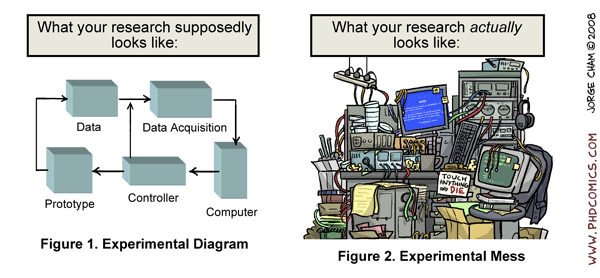Managing Qualitative Research Data at UofG
When I first started my PhD, one of the first things I was asked to think about was how I was going to manage my research data. How you approach this depends on the nature of your research and even though there’s no set away of doing it, there are some general guidelines for it. This post is about my own experience of managing qualitative data collection in the School Social Sciences at UofG. To clarify, in the qualitative stream of research, data constitutes both information about those involved in your study - personal data - and your actual research data in the form of interview audio, transcripts, observations, notes, videos, pictures, etc.
First things first, if you are funded by an external body like the ESRC or the Council for Arts and Humanities, familiarise yourself with their data management requirements. For example, the ESRC might expect you to make the data public so that other researchers can use it in the future. There is also the university’s own data management policy which involves aspects like data protection - participant anonymity, how long you can keep your data for and where you are expected to store it. For example, all of my forms that contain personal data are locked in my office cabinet.
If you are concerned or confused about what you should do with your data, I really recommend you go to the Data Management workshop at the UofG. You can find a link for it here. The university also provides an online data storage programme that can help you be really thorough and organised about how you label and collect everything. You can find that here.
Credit: Screenshot by the author
From my own experience (of someone who has had mishaps with data storage and management) here are four things I have learned about data management:
1. Store your data in different places. This seems intuitive as your data is the most important part of your research so it would make sense you should look after it. I have mine on two USB sticks, on a cloud service, and a PC. The university’s Onedrive cloud is the one you are advised to use for your research storage. Beware, however, of using Google Drive as UofG strongly advises against using it due to copyright and safety issues - I know a lot of people who use both or either.
2. Immediately backup your data, especially as you are collecting it. I use a recorder and my phone to record data and even then I managed to lose part of a recording because I had not moved an interview it from my recorder to the PC immediately after recording it.
Credit: http://www.winzip.com/static/images/feature-pages/data-backup.png
3. Name and organise your data consistently. Labelling your volumes of interviews or observations in a clear and consistent way throughout your PhD will help you find things easier, it will keep your brain de-cluttered because you know where everything is and it will look good for your funders if you ever have to show them the “behind the scenes” of your research process. Especially if you have to share your data with other researchers, it will make that process a lot faster for you, without having to go back and forth.
Credit: https://s-media-cache-ak0.pinimg.com/originals/7e/c8/2b/7ec82b2f440c0808b1cce04c76996aa5.jpg
4. Use a software like NVIVO. I always ask people if they use NVIVO and recommend they do because it is a great tool for managing qualitative data and seeing it all in one place. It helps you categorise it and cluster it in whatever way you want and it is a lot easier to visualise your codes and content if they are laid out in front of you.in a way that make sense to you It is especially useful if you have high volumes of interviews and observations and different kinds of data collection methods.
5. Finally, be thorough! This is something I urge myself to do more as it is not enough to have a management plan in place, you actually have to stick to it. But sometimes, no matter how prepared you are, you might find yourself in an unexpected situation. For example, recently I had lost some of my data despite using two recording devices; they both happened to malfunction. In cases like that, be prepared to improvise. It is important consider what you must do if you lose any of your data - are there ways you can recover it? Luckily for me, I could.
How about you? What are some of your experience with managing your research material? Is there something you wish you had done better or something you think worked really well? Write to us in the comments or on Twitter.







